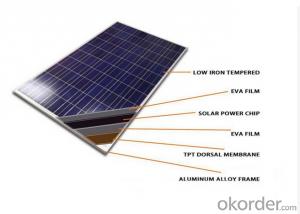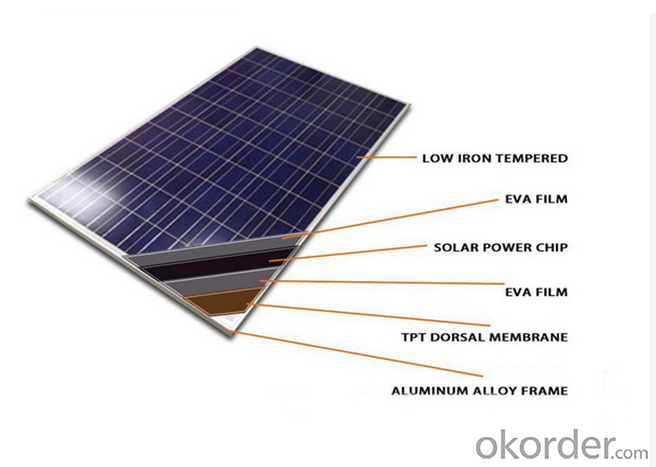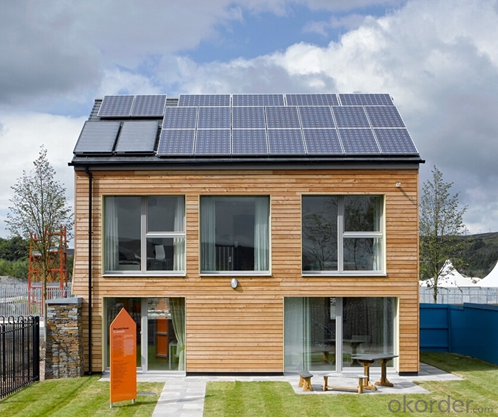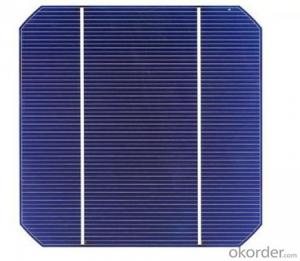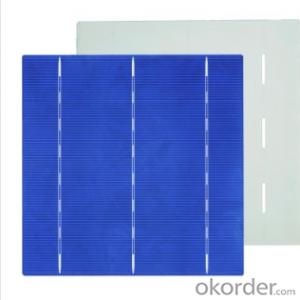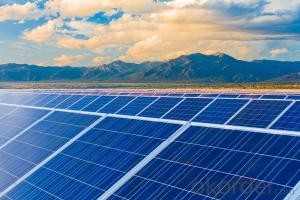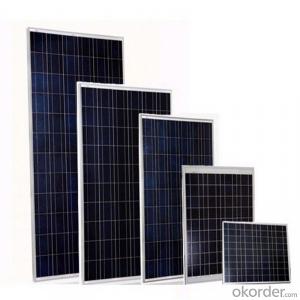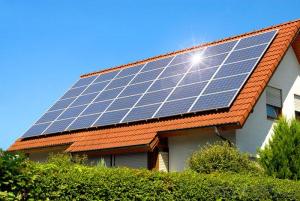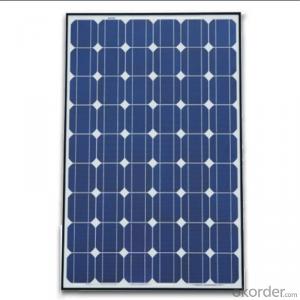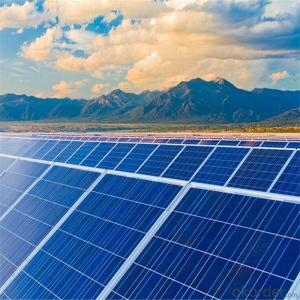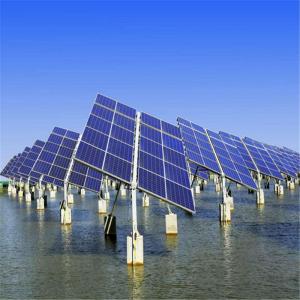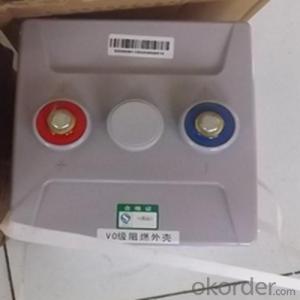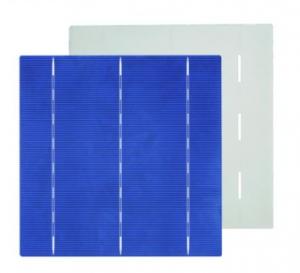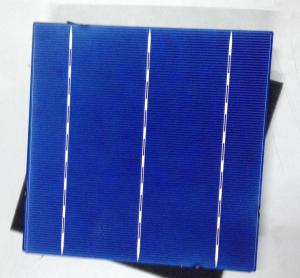260 Watt Doped Photovoltaic Poly Solar Panels
- Loading Port:
- China main port
- Payment Terms:
- TT or LC
- Min Order Qty:
- 1000 watt
- Supply Capability:
- 500000 watt/month
OKorder Service Pledge
OKorder Financial Service
You Might Also Like
Specification
Instruction
Quality and Safety
1. Rigorous quality control meets the highest international standards.
2. High-transmissivity low-iron tempered glass, strong aluminium frame.
3. Using UV-resistant silicon.
4. IS09001/14001/CE/TUV/UL
5.3w-300w mono & poly solar panel supply
Warranties
1. 10 years limited product warranty
2. 15 years at 90% of the minimal rated power output
3. 25 years at 80% of the minimal rated power output
Feature
1. High efficiency and High power.
2. Long-term electrical stability.
3. Lowest price and Fastest delivery.
4. Good quality and good service.
5.Bulk supply
6. Good Warranty
7.Big Sale
8.High quality
9.More than 35 years on the lifetime.
10 DHL/Fedex/UPS/TNT/EMS etc
Images
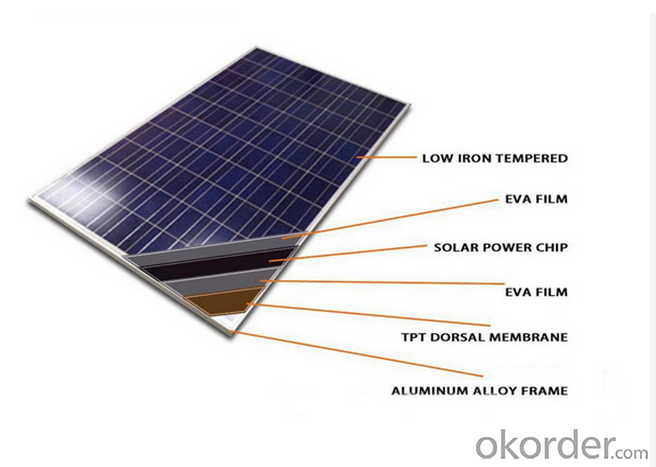
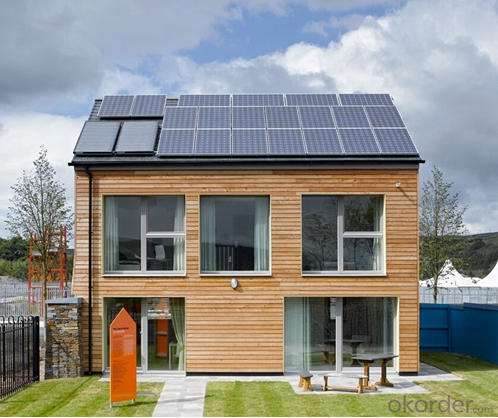
Specification
Model | SIM-100 |
Maximum Power at ST(Pmax)W | 100Wp |
Maximum Power Voltage(Vmp)V | 18.0V |
Maximum Power Current(Imp)A | 5.56A |
Open Circuit Voltage(Voc)V | 22.0V |
Short Circuit Current(Isc)A | 5.9A |
Cell Efficiency(%) | 17.0% |
Module Efficiency(%) | 15.37% |
Operating Temperature°C | -40°C to 85°C |
Maximum system voltage | 1000V(IEC)DC |
Power tolerance | -0.03 |
Temperature coefficients of Pmax | -0.45%/°C |
Temperature coefficients of Voc | -0.27%/°C |
Temperature coefficients of Isc | 0.05%/°C |
Weight(kg) | 7.4 |
Number of cell(pcs) | 4*9 |
FAQ
We have organized several common questions for our clients,may help you sincerely:
1). What’s price per watt?
A: It’s depends on the quantity, delivery date and payment terms of the order. We can talk further about the detail price issue. Our products is high quality with lower price level.
2). Can you tell me the parameter of your solar panels?
We have different series of cells with different power output, both from c-si to a-si. Please take our specification sheet for your reference.
3). How do you pack your products?
We have rich experience on how to pack the panels to make sure the safety on shipment when it arrives at the destination.
4). How long can we receive the product after purchase?
In the purchase of product within three working days, We will arrange the factory delivery as soon as possible. The perfect time of receiving is related to the state and position of customers. Commonly 7 to 10 working days can be served.
What’s a typical solar panel efficiency rating?
Most solar panels are around 11-15% efficient, The efficiency rating measures what percentage of sunlight hitting a panel gets turned into electricity that we can use. The higher the efficiency, the less surface area you’ll need in your solar panels. Although the average percentage may sound a little low, you can easily outfit a typical roof with enough power to cover your energy needs.
What are the most efficient solar panels?
In the lab, scientists have developed solar panels that are 40% efficient, or even slightly more than that. But there’s a big difference between the lab and the real world. Manufacturers haven’t yet figured out how to take these experiments and produce economically viable products. Thinking you should wait for new whiz-bang panels is one of the most common solar myths.
Should I choose the most efficient solar panels available?
High efficiency doesn’t mean better, it just means your panels use less space on your roof. Efficiency isn’t usually a critical concern unless you have an unusually small space for your solar panels. The most efficient solar panels cost a little more, so they’re a less common choice.
Factors that affect solar array efficiency include:
Panel Orientation
In the U.S., your roof ideally should face south, but a quality design can often compensate for other directions.
Roof and Panel Pitch
The “pitch” or tilt of your roof can affect the number of hours of sunlight you receive in an average day throughout the year. Large commercial systems have solar tracking systemsthat automatically follow the sun’s tilt through the day. These are expensive, however, and not typically used for residential solar installs.
Temperature
Some panels like it hot but most don’t. So, panels typically need to be installed a few inches above the roof with enough air flow to cool them down. Some photovoltaic panels are designed to be more efficient in hotter climates. Hot temperatures can reduce the efficiency of solar panels.
Shade
Basically, shade is the enemy of solar panel efficiency. With poor solar design, even a little shade on one panel can shut down energy production on all of your other panels (like a bad bulb in a string of Christmas lights). Before we design a system for your home, we’ll conduct a detailed shading analysis of your roof to reveal its patterns of shade and sunlight throughout the year. Then, our local installation partner conducts another detailed analysis to verify our findings. This is just one of many reasons to work with a highly experienced solar provider like.
For more on solar cell efficiency, go back to the Different Types of Solar Panels. Want to know more about what goes into a solar PV system? See our next page.
- Q: Which one is better on the solar cells panel? The Monocrystal Solar Energy Cell or photovoltaic cell?
- I tried both, and I noticed that photovoltaic cell is better at collecting the sunlight, which can be converted into the power supply I need. In this way, I think photovoltaic cell is the best!
- Q: Do solar cells work in cloudy weather?
- Yes, solar cells can still generate electricity in cloudy weather, although their efficiency may be reduced compared to clear, sunny conditions.
- Q: Which Solar Panel Type is best? Polycrystalline panel or PV Module Monocrystalline Solar cell panel, or thin film?
- Monocrystalline silicon solar panels are space-efficient. Monocrystalline solar panels produce up to four times the amount of electricity as thin-film solar panels.
- Q: How do solar cells contribute to reducing carbon emissions?
- Solar cells contribute to reducing carbon emissions by converting sunlight directly into electricity without any emissions of greenhouse gases. This renewable energy source replaces the need for fossil fuel-based power generation, which is a major contributor to carbon emissions. By harnessing the power of the sun, solar cells provide a clean and sustainable energy solution, helping to mitigate climate change and reduce the carbon footprint of our energy systems.
- Q: Can solar cells be used for powering electronics?
- Yes, solar cells can be used for powering electronics. Solar cells convert sunlight into electricity, which can then be used to power various electronic devices such as calculators, phones, laptops, and even larger systems like solar-powered homes or streetlights.
- Q: How does the solar cell work properly?
- Silicon, as one of the most important semi-conductor material, plays a vital part in how to make the solar cells work.
- Q: Is solar cell technology very developed and v applied to life a lot?
- Yes as far as I know.
- Q: Can solar cells generate electricity at night?
- No, solar cells cannot generate electricity at night. They require sunlight to produce electricity as they convert sunlight into electrical energy.
- Q: Can solar cells be used in disaster recovery efforts?
- Yes, solar cells can be used in disaster recovery efforts. They are a reliable and sustainable source of energy that can provide electricity to power essential devices and equipment in disaster-stricken areas. Solar cells can be used to charge communication devices, provide lighting, run medical equipment, and support temporary shelters. Their portability and ability to operate off-grid make them particularly valuable in situations where traditional power sources are disrupted or inaccessible. Additionally, solar cells can contribute to reducing the reliance on fossil fuels during recovery efforts, promoting a cleaner and more sustainable path towards rebuilding communities affected by disasters.
- Q: Can somebody list some of the materials used for making solar cells?
- There are quite many materials to make a solar cell, but silicon is something you need to have.
Send your message to us
260 Watt Doped Photovoltaic Poly Solar Panels
- Loading Port:
- China main port
- Payment Terms:
- TT or LC
- Min Order Qty:
- 1000 watt
- Supply Capability:
- 500000 watt/month
OKorder Service Pledge
OKorder Financial Service
Similar products
Hot products
Hot Searches
Related keywords
